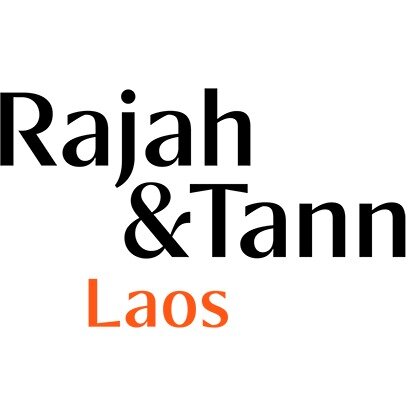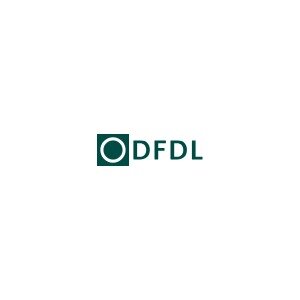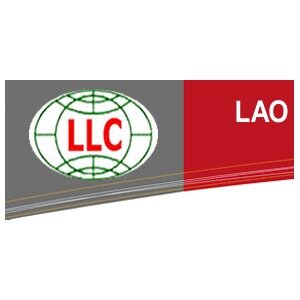Best Project Finance Lawyers in Vientiane
Share your needs with us, get contacted by law firms.
Free. Takes 2 min.
List of the best lawyers in Vientiane, Laos
About Project Finance Law in Vientiane, Laos
Project finance in Vientiane, Laos, refers to the legal and financial structuring of large-scale projects, often in sectors such as energy, infrastructure, mining, and public-private partnerships. It typically involves complex agreements that allow the project to be funded primarily by the future cash flows generated from the project itself, rather than by the balance sheets of the project's sponsors. Project finance is increasingly prevalent in Laos, especially with the country's focus on energy generation, natural resources development, and transport infrastructure upgrades.
Why You May Need a Lawyer
Engaging a lawyer in project finance transactions in Vientiane is crucial because such deals involve intricate legal structures, multiple stakeholders, and various regulatory requirements. Common situations where you may need legal assistance include:
- Negotiating loan and security agreements
- Drafting and reviewing concession agreements with governmental entities
- Structuring joint ventures or special purpose vehicles (SPVs)
- Advising on tax implications and compliance
- Navigating environmental and land use regulations
- Conducting due diligence on project assets and sponsors
- Securing licenses and permits required for project implementation
- Resolving disputes among investors, contractors, or public authorities
- Ensuring compliance with local and international regulations, such as anti-corruption laws and foreign exchange controls
Local Laws Overview
Project finance in Laos is governed by a mix of national laws, regulations, and administrative practices. Key areas of regulation include:
- Investment Law: Governs both domestic and foreign investment, outlining procedures for obtaining investment approval, incentives, and guarantees for investors.
- Concession Law: Offers the framework for public-private partnerships, particularly in infrastructure and natural resource projects. It details the rights and obligations of concessionaires.
- Land Law: Regulates ownership, leasing, and transfer of lands, especially relevant since foreigners and foreign entities face restrictions on land ownership.
- Environmental Protection Law: Requires environmental and social impact assessments for qualifying projects, often as a prerequisite for project approval.
- Secured Transaction Law: Enables taking security interests in movable and immovable assets as collateral for project loans.
- Tax Law: Specifies tax obligations, incentives, and exemptions for project companies, including VAT, profit tax, and customs duties.
- Foreign Exchange Controls: Regulates cross-border movement of capital, significant in projects seeking financing from overseas lenders or investors.
Understanding these local legal frameworks is critical for structuring and executing a project finance deal smoothly in Vientiane.
Frequently Asked Questions
What is project finance?
Project finance is a method of financing in which a project is funded using the cash flows generated by the project itself, with project assets and rights serving as collateral.
Who can invest in project finance deals in Vientiane, Laos?
Both domestic and foreign investors can participate in project finance transactions, subject to compliance with local investment laws, sector-specific restrictions, and licensing requirements.
What are special purpose vehicles (SPVs) and why are they used?
SPVs are legally separate entities created solely for the purpose of executing a project. They ring-fence project assets and liabilities, thereby offering risk segregation for project stakeholders.
Are there restrictions on foreign ownership in project finance?
Yes, foreign investors may face restrictions, particularly regarding land ownership and participation in sectors of national interest. However, structures such as long-term leases or joint ventures with local partners are commonly used.
How is government involvement structured in project finance projects?
Government involvement is often formalized through concession agreements, guarantees, or as co-investors, especially in infrastructure or resource projects. These agreements define the rights, obligations, and risk allocation between the parties.
What types of security can be provided to lenders in Laos?
Security may include mortgages over immovable property, pledges over shares or project assets, and assignments of contract rights and accounts. Perfection of security interests must comply with the Secured Transaction Law.
What licenses and permits are needed for project finance projects?
Depending on the sector, common requirements include investment registration, business operating licenses, environmental clearance, land use certificates, and sector-specific permits.
How are disputes typically resolved in project finance deals in Laos?
Disputes can be resolved through negotiation, mediation, arbitration, or court proceedings. Many concession or loan agreements specify international arbitration as the preferred forum.
What tax incentives may be available for project finance?
Qualifying projects may benefit from tax holidays, reduced profit tax rates, import duty exemptions, and other incentives, particularly in promoted sectors or special economic zones.
Is local legal counsel required for project finance transactions in Laos?
While not mandatory under the law, engaging local legal counsel is strongly recommended to navigate legal complexities, draft compliant agreements, and liaise with government authorities.
Additional Resources
Several resources and organizations may be helpful for those seeking information or assistance in project finance in Vientiane:
- Ministry of Planning and Investment (MPI): Approves and regulates investment projects throughout Laos
- Department of Energy Business, Ministry of Energy and Mines: Oversees energy sector projects
- Ministry of Industry and Commerce: Handles business operating licenses and foreign investment registrations
- National Assembly and Lao Official Gazette: For updates on current laws and regulations
- Lao Bar Association: Can help refer qualified legal professionals with project finance expertise
- Chamber of Commerce and Industry: Source for networking and business development guidance
- Development agencies such as the International Finance Corporation (IFC) and Asian Development Bank (ADB) with project finance activity in Laos
Next Steps
If you require legal advice or assistance in project finance in Vientiane, consider the following approach:
- Clearly define your project and identify key legal needs, such as contracts, licensing, or compliance
- Gather relevant documents, including any business plans, financial models, or correspondence with government bodies
- Contact qualified local legal counsel with demonstrable experience in project finance and relevant sector knowledge
- Arrange an initial consultation to discuss your situation, potential risks, and proposed legal steps
- Engage your lawyer to handle negotiations, draft documentation, and liaise with authorities throughout the project lifecycle
- Stay informed by regularly checking updates on regulations and industry practices in Laos
By following these steps and seeking expert legal advice, you can help ensure the successful planning, structuring, and execution of your project finance endeavor in Vientiane, Laos.
Lawzana helps you find the best lawyers and law firms in Vientiane through a curated and pre-screened list of qualified legal professionals. Our platform offers rankings and detailed profiles of attorneys and law firms, allowing you to compare based on practice areas, including Project Finance, experience, and client feedback.
Each profile includes a description of the firm's areas of practice, client reviews, team members and partners, year of establishment, spoken languages, office locations, contact information, social media presence, and any published articles or resources. Most firms on our platform speak English and are experienced in both local and international legal matters.
Get a quote from top-rated law firms in Vientiane, Laos — quickly, securely, and without unnecessary hassle.
Disclaimer:
The information provided on this page is for general informational purposes only and does not constitute legal advice. While we strive to ensure the accuracy and relevance of the content, legal information may change over time, and interpretations of the law can vary. You should always consult with a qualified legal professional for advice specific to your situation.
We disclaim all liability for actions taken or not taken based on the content of this page. If you believe any information is incorrect or outdated, please contact us, and we will review and update it where appropriate.












